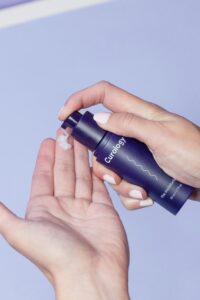
Skincare is more than just a beauty trend; it’s a science, an art, and an essential practice for maintaining health and well-being. As the beauty industry continues to grow, the demand for professionals with expert knowledge and skills in skincare is greater than ever. Transforming basic skincare knowledge into true expertise requires commitment, continuous learning, and hands-on experience. This journey involves gaining a deep understanding of the skin’s structure, functions, and the many factors that can affect its health and appearance, and then applying that knowledge to provide effective treatments.
In this article, we explore how skincare knowledge can be transformed into expertise, the importance of professional training, and the steps to become a skincare specialist who can not only understand the science behind skincare but also provide personalized care that addresses the unique needs of each individual.


Understanding the Science Behind Skincare
Skincare is a complex field that involves understanding the biology of the skin and how different treatments interact with it. The first step in transforming skincare knowledge into expertise is to understand the anatomy and physiology of the skin. Our skin is the body’s largest organ and serves as a protective barrier against environmental factors like UV radiation, pollutants, and microorganisms. It’s essential to have a strong foundation in skin structure, including the epidermis, dermis, and hypodermis, as well as the skin’s natural functions such as hydration, protection, and healing.
Moreover, understanding the types of skin—whether oily, dry, combination, or sensitive—is crucial to providing personalized skincare treatments. Skincare professionals must also be familiar with the factors that influence skin health, such as genetics, diet, lifestyle, and environmental exposure. The more you understand the science behind the skin, the more effective you’ll be in diagnosing skin conditions and providing the right treatments.
The Role of Skincare Products and Ingredients
Skincare products play a pivotal role in maintaining healthy skin, but not all products are created equal. To become an expert, you must learn to identify high-quality ingredients and understand how they work to improve skin health. This involves knowing how to choose the right products for different skin types and concerns.
For example, ingredients like retinoids, hyaluronic acid, vitamin C, and peptides are commonly used for anti-aging, brightening, and hydrating. Each ingredient has a unique mechanism of action, and an expert skincare professional must know how to integrate them into a tailored skincare routine. For individuals with acne-prone skin, ingredients such as salicylic acid and benzoyl peroxide can help reduce inflammation and clear pores. Meanwhile, people with sensitive skin may benefit from calming ingredients like aloe vera and chamomile.
Understanding cosmetic chemistry is also essential. An expert must be aware of how different ingredients interact with each other. Some ingredients may enhance the effectiveness of others, while some may cause irritation or reduce the efficacy of the products. For instance, combining retinol with certain acids can increase the risk of skin irritation, so experts must know when and how to apply specific products for optimal results.
Hands-On Experience and Practical Application
While theoretical knowledge is crucial, transforming skincare knowledge into expertise requires hands-on experience. Skincare professionals must not only understand the science behind treatments but also be skilled in performing them effectively. Practical training is essential in building the confidence and technical ability to deliver high-quality treatments.
For example, performing a facial treatment requires expertise in assessing a client’s skin type, identifying any conditions such as acne, rosacea, or hyperpigmentation, and determining the best course of action. The professional must be able to use the right techniques for cleansing, exfoliating, extracting, and applying treatments such as masks or serums. Each step requires careful consideration of the client’s skin condition and any sensitivities they may have.
Beyond facials, other skincare services like microdermabrasion, chemical peels, laser treatments, and microneedling also require advanced training. These treatments involve more technical skills and an understanding of how different devices and procedures interact with the skin. Each procedure must be customized to meet the individual needs of clients, and knowing when a treatment is appropriate for a specific skin concern is crucial for delivering effective results.
The Importance of Ongoing Education
The beauty industry, especially skincare, is constantly evolving with new technologies, ingredients, and treatment methods emerging all the time. As a result, skincare professionals must be committed to continuous learning. Transforming knowledge into expertise is not a one-time process but rather a lifelong journey.
Attending industry conferences, participating in workshops, and completing advanced training programs are great ways to stay up to date with the latest trends and developments in the skincare field. New ingredients are constantly being discovered, and innovative treatments like non-invasive facial rejuvenation, LED light therapy, and bio-stimulation are gaining popularity. By staying informed about these developments, skincare professionals can offer cutting-edge treatments that meet the needs of modern clients.
Ongoing education also includes expanding your knowledge of client communication and business management. Being able to effectively consult with clients, understand their skincare goals, and build lasting relationships is just as important as technical expertise. Additionally, learning how to run a successful skincare practice, manage finances, and market services are crucial for anyone looking to turn their skincare expertise into a thriving career.
The Path to Becoming a Skincare Expert
To become a skincare expert, the following steps are essential:
- Start with Education: Enroll in a reputable skincare or esthetics program that provides a solid foundation in skincare science, techniques, and professional ethics.
- Gain Hands-On Experience: Participate in internships, apprenticeships, or work under experienced professionals to refine your skills.
- Continue Learning: Take advanced courses, attend workshops, and stay informed about new treatments and products in the skincare industry.
- Develop Your Professional Network: Join industry associations and connect with other professionals to share knowledge and grow your career.
- Commit to Client-Centered Care: Always focus on the needs of your clients, personalize their treatments, and offer tailored advice that helps them achieve their skincare goals.
Conclusion
Transforming skincare knowledge into expertise is a process that involves more than just acquiring facts and theories. It requires the application of that knowledge in real-world settings, continuous learning, and a dedication to providing the best possible care for clients. With a strong foundation in the science of skincare, a deep understanding of products and techniques, and hands-on experience, anyone can evolve into a skincare expert. As you continue to refine your skills and stay informed about new advancements, you’ll not only grow in expertise but also gain the confidence to help others achieve their healthiest, most radiant skin.




